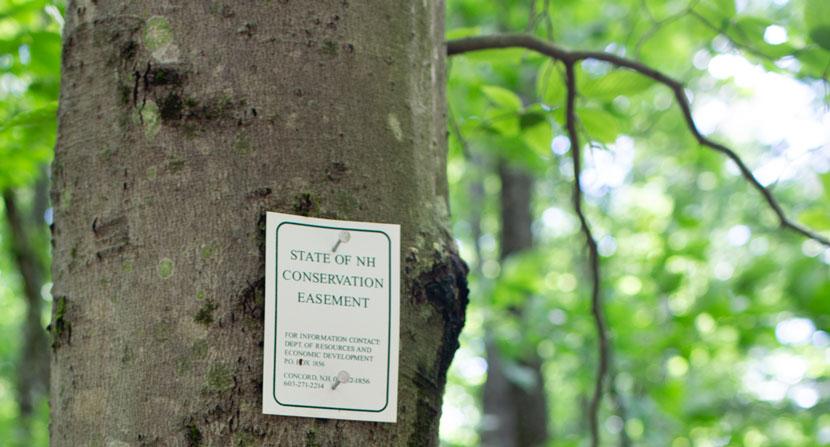TAKE ACTION
- Tags:
- Advocacy

*UPDATE: Thanks to everyone who joined the Forest Society in opposition to this legislation targeting conservation easements. The result of the hearing was moving the bill to a study committee and you can read more in an IndepthNH news article here.
The Judiciary Committee in the New Hampshire House of Representatives will hold a virtual hearing on House Bill 82 on February 23 at 9 AM.
If passed into law, this legislation would undermine the integrity of conservation easements — an important tool available to private landowners who wish to protect the natural resources on their properties. The Forest Society opposes this bill. Read the testimony from Forest Society President Jack Savage here.
We encourage readers to contact the House Judiciary Committee to express opposition to HB 82.
To register your position, simply click this link and select Tuesday 2/23 as the hearing date. Then select the “House Judiciary Committee” and “HB 82” from the dropdown menus.
You can also email the Committee members using this link.
These are the key points to make with the Committee members:
- The bill is not necessary. While conservation easements are permanent, they are not unchangeable. New Hampshire already has in place an established process overseen by the State’s Attorney General to amend conservation easements.
- Conservation easements are an important option for private property owners who want to protect the natural resources on their land. If passed into law, HB 82 may restrict their ability to use this tool.
- It may result in several unintended consequences including:
- The United States Internal Revenue Code includes requirements that in order for a conservation easement to be income tax-deductible for the grantor, it must be perpetual. The IRS could likely argue the vague language in the bill is counter to the perpetuity requirement and therefore disallow the federal income tax deductibility of conservation easement donations.
- Federal agencies like the USDA-Natural Resources Conservation Service could likely stop funding easements agricultural protection goals if it determines that due to the passage of HB 82 easements in New Hampshire are no longer permanent.
